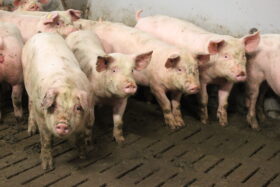by Ilinca Anghelescu, Global Director Marketing and Communications
In a rare move that betrays urgent concerns, the EU is moving to address its economic weaknesses and close competitiveness gaps. Among the targeted changes are burdensome Sustainability regulations.
The release of the European Commission’s “Competitiveness Compass” last week aims to “urgently tackle longstanding barriers and structural weaknesses”, which, the Commission admits, are caused in part by heavy regulatory burdens. One point addressed is “closing the innovation gap”, i.e. investing in AI and digital infrastructure and removing heavy administrative obligations that hinder fast innovation. Another proposal is to diversify dependencies and increase security, in terms of defense and preparedness as well as security in front of climate change threats.
However, of particular importance to agriculture is the list of “horizontal enablers”, i.e. actions to be taken soon that reduce the regulatory burden for farmers and food producers. Policies will thus be recalibrated to balance productivity with environmental goals, particularly under the green and digital transitions. The EU plans to release an “omnibus” package by the end of February, suggesting rolling back or reframing some of the key regulations and policies. Especially under the lens are the Corporate Sustainability Reporting Directive and the Corporate Sustainability Due Diligence Directive. These were about to receive implementation deadlines at the end of 2025 and 2026, compelling companies to take specific steps to curb and/or offset contributions to climate change.
See below the areas highlighted for change in the EC’s Compass.
Streamlining sustainability regulations for agriculture
One major focus is simplifying the regulatory environment to support farmers’ ability to adopt eco-friendly practices without facing administrative overload. Key initiatives include:
- Reducing excessive administrative processes linked to sustainability reporting, thereby making it easier for small and medium-sized farmers to participate in carbon reduction or biodiversity schemes.
- Encouraging voluntary measures rather than mandatory requirements where possible, ensuring that sustainability practices can be phased in gradually with adequate support.
Scaling back costs through regulatory flexibility
Proportional application of environmental rules: Regulations will be tailored based on farm size and production type, alleviating the burden on small farms and cooperatives. For instance:
- Farms participating in carbon farming or agroforestry will benefit from simplified eligibility criteria and streamlined evaluation processes.
- Less frequent monitoring and audits are proposed for farms demonstrating long-term sustainability commitments.
Additionally, digital compliance tools will play a role in reducing paperwork. Farmers can use online platforms to track and report environmental performance, cutting costs related to inspections and administrative filings.
Sustainable practices supported by innovation incentives
Rather than relying solely on regulations, the EU plans to incentivize eco-friendly practices through funding mechanisms and access to innovation:
- The Common Agricultural Policy (CAP) will expand its financing options for farms transitioning to organic methods, renewable energy usage, or improved nutrient recycling systems.
- Green technology access: Subsidized programs will help farmers adopt technologies like precision irrigation and AI-driven crop management, reducing both environmental impact and operational costs.
Integration of environmental goals without compromising competitiveness
The policy framework emphasizes that climate-neutral agriculture must remain productivity-focused. Key mechanisms for achieving this balance include:
- Carbon offset programs allowing farmers to generate income by implementing carbon-sequestering practices such as cover cropping and reduced tillage.
- Support for sustainable fertilizer alternatives: The EU aims to cut synthetic fertilizer use while promoting domestic production of bio-fertilizers to avoid dependency on imports.
Striking a balance between economics and environmental concerns
By reducing administrative burdens, offering financial incentives, and prioritizing flexibility, the EU attempts to achieve sustainability without hindering productivity. However, according to The Wall Street Journal, some groups – either investors or large companies – have already protested the proposed changes. These are the groups that have made massive internal changes to prepare for the Corporate Sustainability Reporting Directive and the Corporate Sustainability Due Diligence Directive, and who made them an important part of their reporting and positioning.
The omnibus package is due at the end of February, after which it will have to undergo several rounds of reviews and approvals before becoming effective in any way. It remains to be seen if the heavy administrative apparatus of the Commission is able to put these changes in motion with the same urgency that the Compass indicates.













